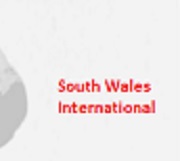The following advice is taken from official sources, both from the UK, World Health Organisation, Czech Republic and the event organisers. The consensus is that, providing sensible precautions are taken, there is a very low risk that an individual travelling to the Czech Republic will catch the virus. However, it is recognised that there will always be concerns, regardless of the reassurances.
Please make sure you watch the video from the World Health Organisation, below.
Official Guidelines
FCO
FCO have no covid-19 related advice regarding travelling to the Czech Republic, but we will keep a close eye on this. You can subscribe to the FCO live updates by email on travel to the Czech Republic here
Organisers
Here’s a statement from the organisers
Regarding Covid-19:
Preventive measures will be followed in cooperation with FIDE medical committee. Government takes this issue with a great care, special checkpoints at the airport were established to monitor the situation. There has not been confirmed any person with Covid-19 in Czech Republic, so there is no need to be worried. Further information at the website of Czech ministry of health:
In conclusion, we believe that you will have a great experience and will enjoy the championship.
We look forward to seeing you in Prague!
WCU
While that is somewhat reassuring, we will be in a closed environment with people flying in from a number of different countries. Italy is still on the list of participants, but that might change. Even so, providing sensible precautions are made, the risk is still extremely low. FIDE has published the following advice for those attending the 90th FIDE conference. While there is less risk in Prague, it is worth making note of the advice.
HOW TO PROTECT YOURSELF AGAINST CORONAVIRUS (COVID-19)
1. Wash your hands frequently
Wash your hands frequently with soap and water or use an alcohol-based hand rub if your hands are not visibly dirty. Why? Washing your hands with soap and water or using alcohol-based hand rub eliminates the virus if it is on your hands.
2. Practice respiratory hygiene
When coughing and sneezing, cover mouth and nose with flexed elbow or tissue – discard tissue immediately into a closed bin and clean your hands with alcohol-based hand rub or soap and water. Why? Covering your mouth and nose when coughing and sneezing prevents the spread of germs and viruses. If you sneeze or cough into your hands, you may contaminate objects or people that you touch.
3. Maintain social distancing
Maintain at least 1 meter (3 feet) distance between yourself and other people, particularly those who are coughing, sneezing and have a fever. Why? When someone who is infected with a respiratory disease, like 2019-nCoV, coughs or sneezes they project small droplets containing the virus. If you are too close, you can breathe in the virus.
4. Avoid handshakes, hugs, kisses on the cheek and other close personal contacts with fellow conference attendees and other persons present
Why? COVID-19 is spread via coming into contact with infected droplets and the above actions can expose you to infection with COVID-19 if your close contact is infected.
5. Avoid touching eyes, nose and mouth
Why? Hands touch many surfaces that can be contaminated with the virus. If you touch your eyes, nose or mouth with your contaminated hands, you can transfer the virus from the surface to yourself.
6. If you have fever, cough and difficulty breathing, seek medical care early
Tell your health care provider if you have travelled in an area in China where 2019-nCoV has been reported, or if you have been in close contact with someone who has travelled from China and has respiratory symptoms. Why? Whenever you have fever, cough, and difficulty breathing it’s important to seek medical attention promptly as this may be due to a respiratory infection or other serious condition. Respiratory symptoms with fever can have a range of causes, and depending on your personal travel history and circumstances, 2019-nCoV could be one of them.
Airlines
EasyJet are saying (27/2/20) that their existing policies and procedures are in line with the guidance provided by the World Health Organisation (WHO) and EASA. They remain in regular contact with the authorities and will amend procedures if and when required if guidance changes. There is currently no change to advice for airlines, so flights are operating as normal and standard terms and conditions on tickets continue to apply. Things can change quickly, so please check regularly with your airline. There is little chance of us being checked at airports. If they have screening in place it is where inbound fights have arrived from highly infected areas such as China, Italy and South Korea. For further details check here.
World Health Organisation
Please watch the following video which answers a broad range of question regarding travel and the covid-19 virus.
WHO statement on International Travel
Hygiene Guidelines.
When travelling on public transport, please be more vigilant than usual by:
• Washing your hands as often as you can
• Consider carrying anti-bacterial hand wipes or gel
• Try your best to ‘catch’ your coughs and sneezes in handkerchiefs
Other Advice
• EHIC cards are still valid in the Czech Republic for UK residents, so take one if you have one
• The WCU highly recommends everyone has travel insurance. It is the responsibility of travellers to make sure the level of insurance is appropriate
• Accommodation and/or flight refunds must be claimed through insurance if the airlines or hotels will not do so.
Mark Adams
WCU Executive Director
29th Feb 2020






